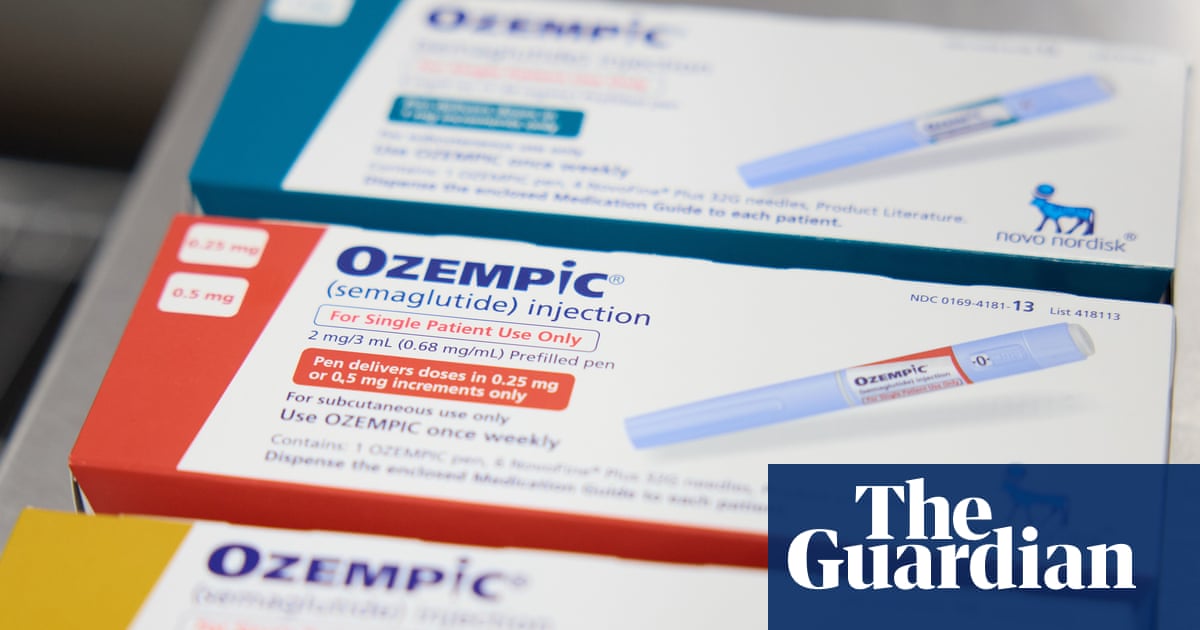The maker of the weight-loss and diabetes drugs Ozempic and Wegovy is to cut 9,000 jobs as it issued a profit warning amid increased competition from the US rival Eli Lilly.
Novo Nordisk’s decision to cut 11% of its global workforce comes as sales of its diabetes drugs including Ozempic have slowed sharply as it faces fierce competition from Eli Lilly’s Mounjaro jabs and the threat of US tariffs.
The drugmaker, whose booming sales of GLP-1 diabetes and obesity drugs in recent years had turned it into Europe’s most valuable company, said that 5,000 of the job cuts will be in its home country, Denmark.
The Danish company’s market value has slumped by more than 60% over the past year and it has estimated that the cuts programme will save it 8bn kroner (£930m) a year by 2026.
Novo Nordisk said the job cuts will cost 8bn kroner in restructuring charges, and cut its operating profit growth forecast for this year from 10-16% to 4-10%.
“It is always difficult to see talented and valued colleagues go, but we are convinced that this is the right thing to do for the long-term success of Novo Nordisk,” said Mike Doustdar, who took over as the chief executive in July. “We need a shift in our mindset and approach so that we can be faster and more agile.”
Novo Nordisk, which employs 78,400 staff globally, has also been hit by disappointing clinical results of its new obesity drug, CagriSema, which failed to outperform Eli Lilly’s Mounjaro in weight loss.
Over the past five years, Novo Nordisk increased employee numbers by 75% as the company’s performance soared because of the global popularity of its Wegovy and Ozempic weight-loss drugs.
Doustdar said the company, traditionally a strong player in diabetes treatments, needed to evolve in a market where obesity drugs had become “more competitive and consumer-driven”.
skip past newsletter promotion
Sign up to Business Today
Get set for the working day – we’ll point you to all the business news and analysis you need every morning
Privacy Notice: Newsletters may contain information about charities, online ads, and content funded by outside parties. If you do not have an account, we will create a guest account for you on theguardian.com to send you this newsletter. You can complete full registration at any time. For more information about how we use your data see our Privacy Policy. We use Google reCaptcha to protect our website and the Google Privacy Policy and Terms of Service apply.
after newsletter promotion
He said: “This means instilling an increased performance-based culture, deploying our resources ever more effectively, and prioritising investment where it will have the most impact – behind our leading therapy areas.”

